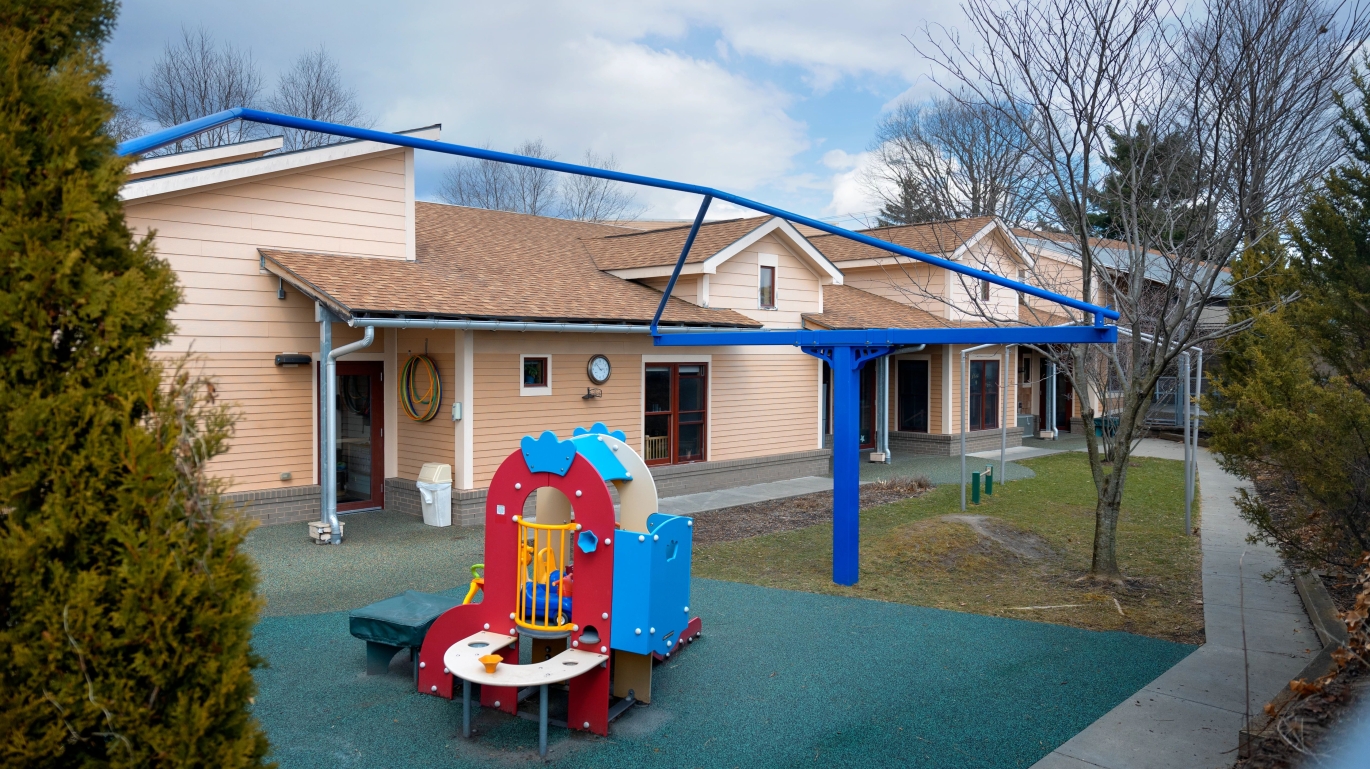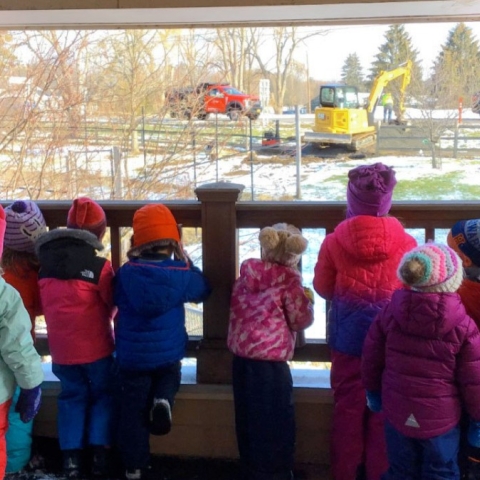
So long, natural gas heat: Let the Earth warm little fingers and toes.
The construction of a new, environmentally friendly heating and cooling system at the Cornell Child Care Center – a standalone building adjacent to the A Lot on Pleasant Grove Road – will likely start in late summer.
Managed by Engineering and Project Management in Facilities and Campus Services, the project – formally called the Vertical Closed-Loop Geothermal System – will remove the old, carbon-heavy natural gas heating system and replace it with ground-source heat by early 2023.
Through this new system, an antifreeze and water mixture will circulate through the geothermal loop, traveling from the wells (drilled to a depth of less than 500 feet) into the building to provide heat. The same equipment will provide cooling in the summer by reversing the process, as the fluid loop captures heat from inside the child care center and sends the heat into the Earth.
“Ground-source heat pumps will eliminate the use of fossil fuels for heating at this outlying facility,” said Matthew Kozlowski, manager of the Environmental and Energy Engineering Section in Facilities. “Since the building is not connected to our campus district heating and cooling system, building-level, heat-pump technology is an important tool to accomplish Cornell’s campus 2035 climate neutrality goals.”
Built in 2008, the Cornell Child Care Center is a 16,240-square-foot facility, operated by Bright Horizons and overseen by Cornell’s Division of Human Resources. On any given day, the center cares for 48 infants, 50 toddlers and 60 preschool children.
Three years ago, Facilities began exploring the replacement of the existing heating system, which was nearing the end of its useful mechanical life.
LaBella Associates, a Rochester-based civil engineering firm, reviewed the test well results and determined that shale, a good conductor of heat, was seated below the center – perfectly placed for the wells.
“The rock formation that our vertical wells pass through resulted in a higher-than-average thermal conductivity,” said Patrick Ockenfels, mechanical engineer in Facilities. “This allows the ground-source heat pump system to efficiently absorb or reject (return) heat to the Earth.”
LaBella is developing a system schematic for the project, according to Travis Fisher, director of Cornell’s Project Management, Renewal and Critical Maintenance Team. “Understanding geology is so important in these systems,” Fisher said. “It gives Cornell a real option to reduce carbon emission.”
Toward midsummer, the project managers will request bids for the drilling of geothermal wells, which will happen in September. The project’s interior construction, and replacement of mechanical equipment, likely will take place over winter break in December 2022.
Funding for the project has been budgeted by Facilities, and they were awarded a grant by New York State Electric and Gas for $127,000, as part of its Non-Pipe Alternative initiative aimed at reducing natural gas use.
As the Ithaca campus advances the Climate Action Plan and prepares to implement either Earth Source Heat or ground-source heat pumps, Sarah Carson, director of the Campus Sustainability Office, said the new system at the child care building creates an opportunity to gather more data during construction.
“This is a great chance for us to learn about ground-source heat pumps,” she said, “and create standards for them.”

